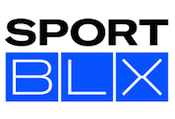|
|
Unlike other business ventures, sponsors of sporting events seem to be wrapped in Teflon. Nothing sticks to them even though they are essential partners with sporting entities because they provide the necessary fuel for the sports organizations.
The question is how long will the immunity given to sponsors by the media continue as the product hawkers support their partners without speaking out about multiple wrongdoings.
Media criticism of the National Football League and Major League Baseball has been ongoing for years. Negative coverage of the fantasy sports business, along with government actions, has curtailed their business. Even though it is not on the popularity level of the major U.S. sports, the travails of FIFA still receives significant coverage.
Now that the basketball and hockey playoffs have ended, football coverage is minimal and baseball coverage is at its normal pace. But the quiet season will soon expire because it’s only weeks away before the Rio de Janeiro Olympic Games, beginning August 5, will be in the spotlight. For months, media has been running stories about the zika virus, which for the time being has kept the press from focusing on other host city and IOC problems, which always are part of Olympic coverage. But that will change as the date of the Opening Ceremony grows closer.
But for marketers, a big question still unanswered considering the increasing year-long nonstop aggressive media reporting about the warts of sports, is how much longer will sponsors' protective covering remain? If the unexpected negative media coverage, both by traditional and social media, of sponsors’ activities at the Sochi Olympics is an indication, the Teflon protection is already being penetrated. Sponsors had to defend or cancel promotions because of attacks by special interest groups at Sochi, which received major coverage. (The bloom of sponsors’ commercials in Super Bowl telecasts has already withered, some receiving negative coverage.)
Below are a few examples from the past (and my suggestions on how sponsors could lessen the possibility of negative coverage), proving that for generations sports marketing sponsors have been living in a Teflon world.
- For years the NFL has received major media criticism for pretending that it didn’t know that concussions to its players could produce serious life-altering medical conditions, and more recently for pretending it didn’t know how prevalent spousal physical abuse was. But the league’s sponsors remain quiet, tantamount to condoning the league’s actions, and received no media criticism for staying silent.
- MLB also has been subjected too much media criticism for its decades-long handling of the steroid problem. But the league’s sponsors remain quiet, tantamount to condoning the league’s actions, and received no media criticism for staying silent.
- There have been numerous unsportsmanlike acts by players in the National Basketball Association and the National Hockey League. But the league’s sponsors remain quiet, tantamount to condoning the league’s actions, and received no media criticism for staying silent.
- But surely, the disconnect between sponsors and sports organizations’ unsavory conduct is sure to be questioned as more investigative sports reporting becomes the norm.
- Democratic countries participation helped provide Hitler with a propaganda tool during the 1936 Olympics in Berlin. History will show the Sochi Olympics did the same for Putin’s totalitarian Russia, despite Russia’s denial of human rights to its citizens and its foreign policy mischiefness. But most sponsors kept quiet, receiving a free get out of jail pass from the media.
Now that Nazi Germany and Russia have proven what we always knew, that politics and sports do mix, despite International Olympic Committee claims to the contrary, American sponsors should use their economic muscle and demand that in the future the IOC award its propaganda- rich games to countries that believe human rights and athletes’ health are more important then a sporting competition. But don’t count on it. American sponsors still are largely complacent about IOC decisions. It’s only a matter of time before sponsors’ reticent about the warts of the IOC (and other sports organizations) are media targets. The increasing cost of sponsorships will drive the coverage.
Despite the sports cabals’ history of ignoring its warts, until government actions and media exposure forced some change, few sponsors have criticized the business as usual attitude of the organizations, missing a great public relations opportunity.
Even after the Russian track and field athletes were banned from the Rio games, probably because of embarrassing media stories detailing the doping, American sponsors remained silent. Where was the outrage? Where were the statements saying that the IOC has to do a better job of making certain that athletes compete on a level playing field? Were the statements, if any, late in coming because the sports marketers prefer to ignore the inglorious history of IOC behavior, making them part of the problem?
It took decades before sports writers stopped turning a blind eye to the unsportsmanlike behavior of athletes and sports organizations, (although some TV football commentators still act like PR spokespersons for the NFL). Sports marketers are still in the Dark Ages.
Soon American sponsors will aggressively role out their Rio Olympic marketing efforts. But now is the proper time for sponsors to let the IOC know that they will not underwrite future Olympic Games if they are played in totalitarian countries or in countries whose environment puts athletes’ and visitors’ health at risk.
Any company that does so is sure to receive major positive media coverage, which will make it standout out from the ground-hog-like run of the mill marketing programs of official sponsors that are often eclipsed by the truly creative ambush marketers.
Sponsors of the Olympic Games try to downplay that they view it as a marketing tool by proudly proclaiming that they are supporting sport and athletes. Speaking out about the warts of the games will prove that they mean it. Doing so will position the sponsors as good corporate citizens, resulting in substantial positive media coverage and what sponsors most want from their affiliation with the Olympics – increased product sales.
* * *
Arthur Solomon, a former journalist, was a senior VP/senior counselor at Burson-Marsteller, and was responsible for restructuring, managing and playing key roles in some of the most significant national and international sports and non-sports programs. He now is a frequent contributor to public relations publications, consults on public relations projects and is on the Seoul Peace Prize nominating committee. He can be reached at [email protected].



 Brunswick Group handles Endeavor, which has launched a review of strategic alternatives at the sports and entertainment combine as CEO Ari Emanuel believes Wall Street undervalues his company.
Brunswick Group handles Endeavor, which has launched a review of strategic alternatives at the sports and entertainment combine as CEO Ari Emanuel believes Wall Street undervalues his company. MWWPR has been retained by SportBLX to lead communications for the launch of a platform that allows fans and investors to own shares of unique assets in sports.
MWWPR has been retained by SportBLX to lead communications for the launch of a platform that allows fans and investors to own shares of unique assets in sports. DraftKings is betting on Donald Trump-connected Ballard Partners to help it achieve its economic development and regulatory relief goals in Washington. (1 reader comment)
DraftKings is betting on Donald Trump-connected Ballard Partners to help it achieve its economic development and regulatory relief goals in Washington. (1 reader comment) On November 15, “Ford v Ferrari” will roar into theaters, packing a publicity boost for two great global auto brands right on the marquee. Here's a Top Ten list of films in which a brand played a starring role. (1 reader comment)
On November 15, “Ford v Ferrari” will roar into theaters, packing a publicity boost for two great global auto brands right on the marquee. Here's a Top Ten list of films in which a brand played a starring role. (1 reader comment) Steven Spielberg’s Amblin Partners has brought on Dan Berger as executive vice president and head of communications.
Steven Spielberg’s Amblin Partners has brought on Dan Berger as executive vice president and head of communications.


 Have a comment? Send it to
Have a comment? Send it to 
No comments have been submitted for this story yet.